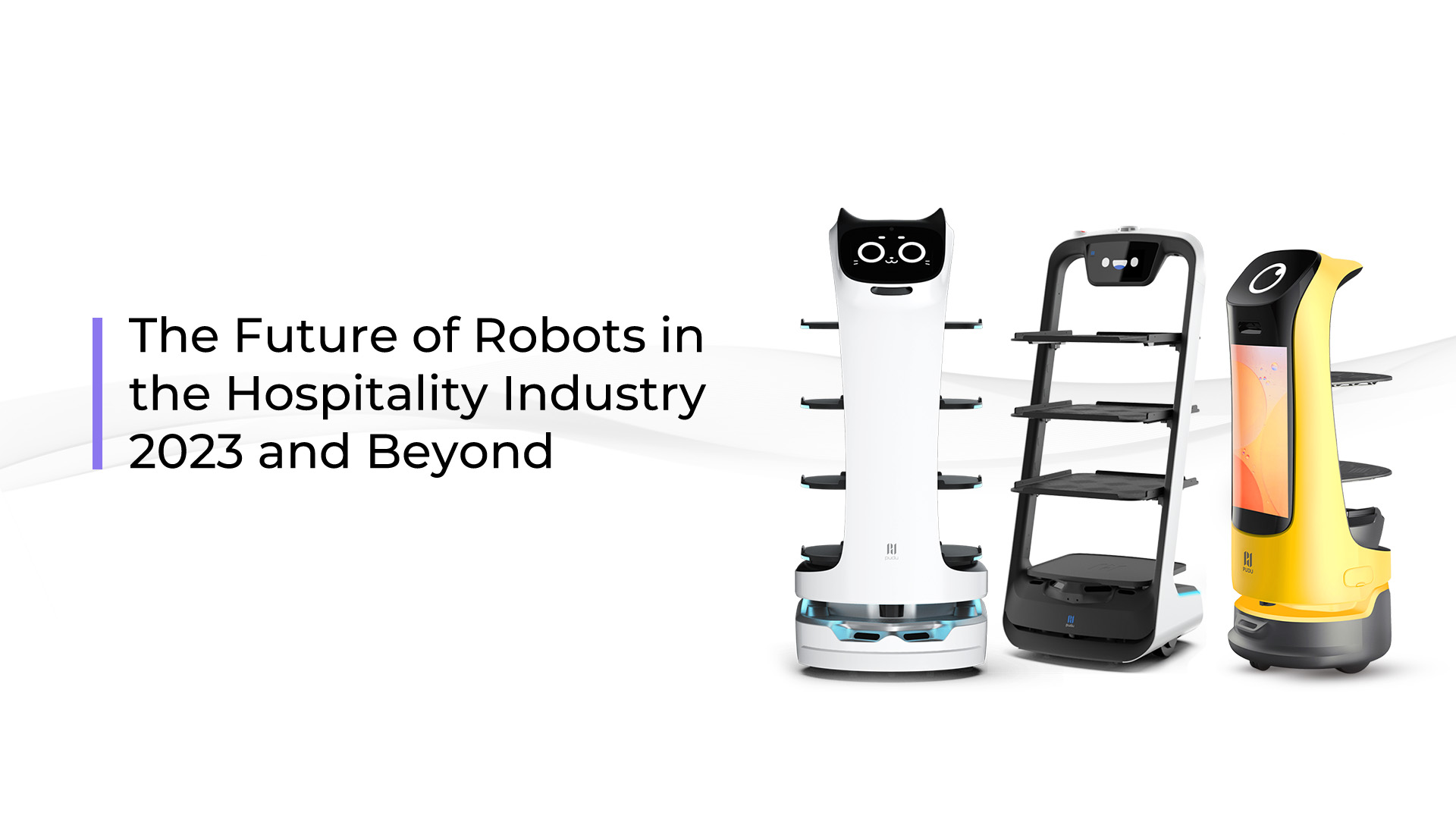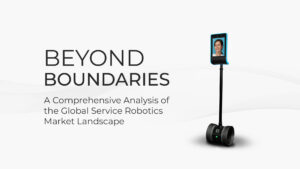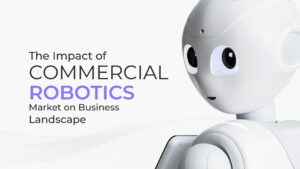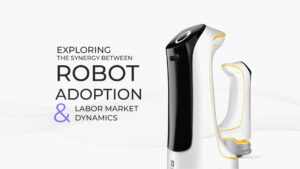Introduction
Hotel and hospitality industries are no strangers to innovation, continuously adapting to meet the needs of travelers’ ever-changing minds. In recent years, a new wave of technology has been making waves in hotels, airports, and travel agencies alike – robots. These futuristic creations are not just a spectacle but actively reshaping how we experience hospitality. In this blog, we’ll take a closer look at the current state and the future of robots in the hospitality industry.
Table of Contents
The future of robots in the hospitality industry with examples
Below examples showcase the diverse applications of robots in the hospitality industry, highlighting their potential to enhance efficiency, customer service, and overall guest satisfaction. As technology continues to evolve, we would like to expect even more innovative and specialized robotic solutions in the hospitality sector.
From concierge to information guide: Meet humanoid robot Pepper for hotels
One notable example of a Pepper robot used in the hospitality sector is in hotels as a multifunctional assistant. Developed by SoftBank Robotics, Pepper is a humanoid robot designed to engage and interact with humans through conversation and its touchscreen interface. Pepper has been employed in the hospitality industry to enhance guest experiences and streamline services.
For instance, some hotels have deployed Pepper as a concierge or receptionist. Upon entering the hotel, Pepper may greet guests at the front desk. The robot can provide information about hotel amenities, nearby attractions and answer frequently asked questions. With its ability to recognize and respond to human emotions, Pepper adds a personalized touch to interactions, creating a more engaging and memorable experience for guests.
Additionally, Pepper can assist with the check-in and check-out processes, providing a seamless and efficient service. It can guide guests to their rooms, offer dining recommendations, and even entertain with its interactive features. By incorporating Pepper into the hospitality setting, hotels aim to enhance customer service and showcase a futuristic and technologically advanced environment. This example illustrates how humanoid robots like Pepper are becoming integral in redefining the guest experience in the hospitality sector.
An inside look at the world’s first robot-staffed hotel
The Henn-na Hotel in Japan has taken the concept of automation to an unprecedented level by employing robots for various tasks, including reception, concierge services, and even room cleaning. Guests at the Henn-na Hotel are greeted by robot receptionists who efficiently handle check-ins, providing a seamless and futuristic experience. Robot bellhops transport luggage to guest rooms, and robot vacuum cleaners ensure rooms are impeccably clean.
Meet Connie, the Hilton robot concierge
Connie, developed by IBM for Hilton Hotels, is an AI-powered robot concierge designed to assist guests with information about the hotel, local attractions, and dining recommendations. Using natural language processing, Connie engages in conversations with guests, providing personalized suggestions and enhancing the overall guest experience. This innovative use of AI in the hospitality industry demonstrates the potential for robots to not only perform tasks but also engage with guests on a more personal level.
A robot assistant for airports and hotels
LG’s Airport Guide Robot is designed to assist airport travelers by providing information about flight schedules, boarding gates, and even weather updates. Similarly, robot assistants are being deployed in hotels to facilitate the check-in process, answer common guest queries, and offer guidance on hotel amenities. These robots contribute to improved customer service and operational efficiency in both airport and hotel environments.
Robots for travel agencies
Robots are finding their way into travel agencies to assist customers in the travel planning process. These robots can provide information about various destinations, suggest itineraries based on user preferences, and even help book flights and accommodations. Integrating robots in travel agencies streamlines the planning phase, making it more interactive and user-friendly.
A chatbot for your flight or hotel bookings
Chatbots have become an integral part of the hospitality sector, providing users with a conversational interface for booking flights or hotels. These AI-powered assistants can understand user preferences, offer personalized recommendations, and handle booking processes efficiently. By incorporating chatbots into the booking process, hotels and airlines can enhance customer service and improve the overall booking experience.
Security robots for airports
Security is a top priority in the hospitality and travel industry, and security robots play a crucial role in maintaining safety. With advanced surveillance technology, these robots patrol airports, monitor crowds and provide an additional layer of security. By automating routine security tasks, these robots allow human security personnel to prioritize more complex and strategic aspects of security management.
A robot suitcase called Travelmate
Travelmate is not your ordinary suitcase; it’s a robotic travel companion that autonomously follows its owner. This hands-free luggage solution is equipped with sensors and AI technology to navigate through crowded airports and busy streets, alleviating the burden of carrying heavy bags. Travelmate is a prime example of how robotics can enhance the travel experience by providing convenience and efficiency.
Some more use cases of robots in the hospitality industry
Robot waiters in restaurants:
Restaurants are incorporating robot servers like BellaBot to enhance the dining experience. These robots can take orders, deliver food, and even engage in interactive conversations with diners, providing a unique and entertaining atmosphere.
Cleaning robots in hotels and airports:
To maintain high hygiene standards, hotels are employing cleaning robots equipped with sensors and AI to autonomously navigate through rooms and common areas autonomously, ensuring thorough cleanliness.
Entertainment robots:
Some hotels hire entertainment robots to engage guests in lobbies and common areas. These robots can provide information about local attractions, play music, and even perform simple tasks to amuse and entertain guests.
Advantages of robots in the hospitality sector
Efficiency:
Robots can automate repetitive tasks, which allows staff to focus on more complex and personal interactions with guests.
Enhanced guest experience:
From personalized recommendations to seamless check-ins, robots contribute to a memorable and enjoyable guest experience.
Cost savings:
While the initial investment might be significant, the long-term cost savings in terms of labor and operational efficiency can be substantial.
Viral potential:
The presence of robots in the hospitality sector can create a buzz on social media and other online platforms. Guests will likely share their unique and futuristic experiences with robotic assistants, leading to viral content that attracts attention and generates organic publicity for the hotel or establishment.
Enhanced marketing opportunities:
Robots serve as innovative marketing tools themselves. Incorporating robots into promotional materials, advertisements, and online campaigns can differentiate a hotel or travel agency from competitors. It showcases a commitment to cutting-edge technology and positions the brand as forward-thinking and customer focused.
Differentiation in a crowded market:
The hospitality industry is highly competitive, and standing out is crucial. Incorporating robots into the guest experience provides a unique selling point that sets a hotel, restaurant, or travel agency apart from others. This differentiation can be a critical factor in attracting tech-savvy and experience-oriented customers.
Tech-friendly brand image:
Adopting robotic technologies projects, a tech-friendly and innovative brand image. This perception can attract a younger demographic that values technological advancements and seeks out establishments that embrace the latest trends. A positive brand image can result in increased customer loyalty and repeat business.
What the future holds
The integration of robots in the hospitality industry is just the beginning. With the advancement of technology, we will likely witness even more sophisticated and intelligent robots that cater to the diverse needs of travelers. From AI-powered concierges to robotic chefs, the possibilities are limitless.
How PROVEN Robotics can help your hospitality sector
PROVEN Robotics is at the forefront of the robotics revolution, offering cutting-edge solutions for the hospitality industry. With robots like Pepper, BellaBot, and KettyBot, PROVEN Robotics provides customizable and efficient robotic assistants to elevate the experience of visitors and guests to new heights. Whether it’s enhancing customer service, streamlining operations, or adding a futuristic touch to your establishment, PROVEN Robotic’s robots are paving the way for the future of hospitality.
In conclusion, the future of robots in the hospitality industry is not a distant dream – it’s happening now. From automating mundane tasks to providing personalized services, robots are redefining the hospitality landscape. As we embrace this technological revolution, the synergy between human warmth and robotic efficiency promises a new hospitality experience. The future is here, and its robotics.




